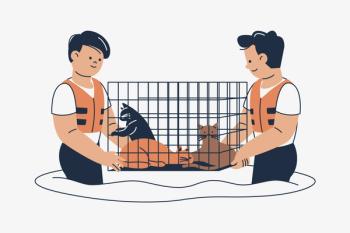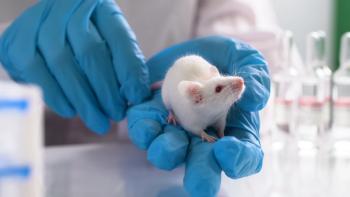
AVMA cautions against consequences of Proposition 2; HSUS lauds victory
National Report - AVMA pledges to help affected food-animal producers by providing information on alternative production systems.
California — Concern about the welfare of animals is a good thing, but the American Veterinary Medical Association (AVMA) says it is still worried about the consequences of Proposition 2, the California initiative that will transform the state's animal agriculture business.
After its passage, the AVMA pledged to help affected food-animal producers by providing information on alternative production systems.
"It was encouraging to see voters in California take such an interest in animal welfare," says Dr. Ron DeHaven, CEO of the AVMA.
"Now that the ballot initiative has passed, veterinarians and animal-welfare scientists must be involved in its implementation to make sure that resulting changes in animal housing actually improve conditions for the animals they are intended to help. If we're not careful, animal health and welfare problems could be precipitated that are as significant as the concerns Proposition 2 aspires to address."
The new law passed by nearly a 27 percent margin Nov. 4, backed primarily by humane groups that argued that current animal-housing standards are inhumane and contribute to disease among farm animals.
But some veterinary groups say more movement of food animals could increase the risks of disease outbreaks.
Prop 2 requires that farms provide enough room for animals to stand up, turn around and extend their limbs. The law will go into effect in January 2015.
"California voters have taken a stand for decency and compassion and said that the systemic mistreatment of animals on factory farms cannot continue. All animals deserve humane treatment, including animals raised for food," Humane Society of the United States President and CEO Wayne Pacelle said in a statement following the election.
The CVMA, the largest state association in the American Veterinary Medical Association's (AVMA) House of Delegates, also supported the ballot measure.
It argued that cramped agriculture housing violates its principles of animal care, and that there is plenty of time to implement new housing strategies before the law will take effect.
But those who opposed Prop 2 said caging practices are not inhumane, that the law could cripple farmers, negatively affecting the practice of food-animal medicine in California.
"Our biggest issue is having the humane societies dictate animal-welfare laws," says Dr. Michael Karle, chair of the CVMA's agricultural committee. "Let the free market dictate what's going on."
One market expecting a lot of trouble in California is the egg market, according to the Farm Bureau Federation.
"In general, we're very disappointed and concerned," says Dave Kranz, manager of media services for the California Farm Bureau Federation.
"We think it's going to have an obvious impact here. In a few years, California-grown eggs are going to be almost impossible to find."
The new law — written to target egg-laying hens, veal calves and sows in gestation pens — will have its biggest impact, Krantz says, on California egg producers, who currently provide about 5 billion eggs per year.
"Demand will have to go elsewhere," Kranz says, adding that farms may move to states with fewer farming restrictions.
"We already bring eggs in from Mexico. There will probably be more of that."
The farm bureau doesn't have a plan in place currently to aid impacted farmers.
Newsletter
From exam room tips to practice management insights, get trusted veterinary news delivered straight to your inbox—subscribe to dvm360.




